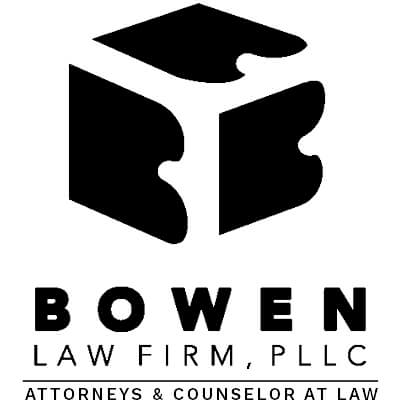Coronavirus Aid, Relief and Economic Security (CARES) Act provides economic relief to small businesses, local governments, and families. Here is what you need to know about how the CARES Act may help you.
- WHAT RELIEF DOES THE CARES ACT PROVIDE FOR FAMILIES?
The CARES Act provides economic relief to families, including:
- Recovery rebates.
- Extended unemployment benefits.
- Small business loans.
- Student loan deferrals.
- Waived penalties on eligible retirement plan distributions.
- Extended time to repay retirement plan loans.
- Aid for services that assist families.
- WHAT IS THE RECOVERY REBATE?
The recovery rebate is a retroactive federal tax cut for taxpayers resulting in a refundable tax credit. The rebate technically applies to taxpayers’ 2020 tax returns, but it is being advanced to taxpayers now based on their 2019 or 2018 tax return to help ease the financial burden caused by the coronavirus pandemic and to stimulate the economy. The rebates are refunded to eligible taxpayers who filed a 2019 or 2018 tax return or who have provided the government with information to establish they are eligible for the rebate even though they did not file taxes, such as Social Security recipients. Single filers are eligible for the maximum recovery rebate amount of $1,200 if their income for their most recently filed tax return (either 2018 or 2019) had an adjusted gross income amount of $75,000 or less. The maximum recovery rebate of $2,400 is available to eligible married filers who had income of less than $150,000. Head of household filers can have an adjusted gross income of up to $112,500 and receive the maximum rebate of $1,200. Additionally, each eligible dependent child adds another $500 to the rebate check.
- WHICH PARENT CAN CLAIM THE ECONOMIC STIMULUS PAYMENT?
If the parents are no longer together, the parent who takes the dependent deduction for the child on his or her tax return will receive the additional $500 payment for the dependent. If you had a child in 2019 but have not yet filed your 2019 tax return, you may want to file it so that you will be eligible for the additional $500 if filing it would not otherwise cause you to lose your recovery rebate.
- HOW IS UNEMPLOYMENT COMPENSATION AFFECTED BY THE CARES ACT?
The CARES Act made temporary changes to unemployment compensation by implementing a new federal program to supplement the unemployment benefits a person receives from the. There are two primary changes: expansion of who qualifies for unemployment benefits and a $600 boost to unemployment benefits. Workers can qualify for the federal portion of benefits if they are ineligible for any other form of unemployment benefits, are unemployed, partially unemployed, or unable to work due to the pandemic and cannot telework or receive paid leave. This provision allows independent contractors, self-employed individuals, gig workers, and individuals who do not have sufficient work history to qualify for other unemployment benefits to now qualify for the new federal benefits under a program called Pandemic Unemployment Assistance. This program provides 39 weeks of unemployment benefits. The $600 weekly boost under the program supplements any state unemployment benefits that individuals receive.
- CAN I RECEIVE UNEMPLOYMENT BENEFITS AS AN INDEPENDENT CONTRACTOR?
Possibly. If you are unemployed, partially unemployed, and cannot telework or otherwise receive paid leave, you may be eligible to receive federal unemployment benefits under the Pandemic Unemployment Assistance program. However, you will likely not qualify for state unemployment benefits, since these programs generally exclude independent contractors from coverage.
- WHAT ARE SOME OF THE ECONOMIC PROVISIONS THAT MAY AFFECT FAMILIES?
Numerous economic provisions in the CARES Act may impact families, including:
- Required minimum distribution requirements for many retirement plans have been suspended for 2020.
- Individuals who already received their required minimum distribution can roll this amount back over to their plan within 60 days to avoid any tax penalties.
- Individuals may be able to take out up to $100,000 in retirement accounts while being able to avoid the 10% early withdrawal penalty if they, their spouse, or a dependent is diagnosed with COVID-19 or have suffered financial repercussions due to the pandemic.
- 401(k) loans may be available at twice the amount previously allowed, up to $100,000 or 100% of the account owner’s principal, whichever is less for participants adversely affected by the pandemic.
- Individuals who previously took out a 401(k) loan can extend their payments for an additional year.
- Individuals can opt to delay their income tax return filing and payment until July 15.
- The deadline to make IRA contributions is delayed to the earlier of the date the taxpayer files his or her 2019 income tax return and July 15, 2020.
- Payroll and self-employment taxes can be deferred so that 50% of the amount owed is paid by Dec. 31, 2021 and Dec. 31, 2022 if eligible.
- The Small Business Administration has approved billions of dollars in forgivable and economic disaster loans.
- Small business owners may be able to receive an employee retention credit for maintaining their workforce during the pandemic.
- There are enhanced benefits for charitable gifts, including a $300 deduction for cash donations that filers who do not itemize their taxes can take.
- An automatic administrative forbearance was placed on all federal student loans until Sept. 30, 2020, during which time there will be no interest on the deferred amount.
- Students who were displaced due to the coronavirus may have additional relief, such as canceling loans for semesters not completed or receiving payments for work-study programs that they could not complete.
- Homeowners can request an initial 180-day postponement of their mortgage payments and then request another 180 days.
- Servicers of federally backed mortgages must delay taking action to foreclose on properties for at least 60 days.
- Landlords with mortgages backed by HUD cannot evict tenants for nonpayment or charge fees for late or missing payments for 120 days.
- The Temporary Assistance for Needy Families program is extended through Nov. 30, 2020.
- DOES THE CARES ACT PROVIDE FINANCIAL SUPPORT FOR EARLY LEARNING AND CARE PROGRAMS?
The CARES Act provided $3.5 billion for the Child Care and Development Block Grant Program, which helps ensure childcare providers who receive childcare subsidies can continue to operate and to be available for front line workers. These funds can also be used to aid the cleaning efforts of these facilities. $750 million was allocated for Head Start programs and support through public housing programs and funding for K-12 and higher education.
- DOES THE CARES ACT PROVIDE AID FOR NUTRITION SER VICES?
Yes. The CARES Act allocates $15.5 billion to the Supplemental Nutrition Assistance Program, $8.8 billion to the Child Nutrition Program, and $290 million to the FEMA Emergency Food and Shelter Program. Another $450 million was designated to assist food banks. Nutrition Assistance to Puerto Rico and the Territories is receiving $200 million and the Food Distribution Program on Indian Reservations is receiving another $100 million. The Healthy Start Program, which supports maternal and infant health, has also been extended.
- DOES THE CARES ACT PROVIDE FINANCIAL RELIEF FOR DOME STIC VIOLENCE SERVICES?
The CARES Act provides $45 million for additional support to domestic violence shelters and $2 million in additional financial support for the National Domestic Violence Hotline.
- HOW MAY MY FAMILY BUSINESS BE ASSISTED BY THE CARES ACT?
The CARES Act provides various forms of financial relief for small businesses, such as designating billions of dollars that the Small Business Administration can provide for lenders to back forgivable loans and economic disaster loans. Eligibility for 501(c)(3) and faith-based nonprofit businesses has been expanded so that many of them can be eligible for the SBA loans.
Those who do not receive these payments may be able to take advantage of other economic relief options, such as delaying 50% of their payroll or self-employment taxes to Dec. 31, 2021 and the other 50% to Dec. 31, 2022 or receiving a tax credit for retaining their employees. A few new initiatives like the Entrepreneurial Assistance program have also been launched.
- ARE THERE OTHER CORONAVIRUS-RELATED LAWS THAT MAY HELP PARENTS?
Yes. The Families First Coronavirus Response Act and the Coronavirus Preparedness and Response Supplement Appropriations Act may directly or indirectly help parents. Also, many state and local governments have passed many additional laws or ordinances to provide financial relief to families and businesses and to provide guidance on child custody orders.
- WHAT IS THE FAMILIES FIRST CORONAVIRUS RESPONSE ACT?
The Families First Coronavirus Response Act requires covered employers to provide employees with paid sick leave or expanded family and medical leave for coronavirus-related reasons. Covered employers include public and private employers with fewer than 500 employees.
- AM I ELIGIBLE FOR PAID MEDICAL LEAVE?
If you work for a covered employer, you are an eligible employee without regard to how long you have worked for your employer. You can receive paid medical leave of up to two weeks if any of the following situations apply:
- You are subject to a federal, state, or local COVID-19 quarantine or shelter-in-place order.
- You have been advised by a health care provider to self-quarantine because of COVID-19.
- You are experiencing COVID-19 symptoms and are seeking a diagnosis for the virus. Sick leave is paid for up to 80 hours of pay at your regular rate of pay. If you are unable to work because you need to care for another person who meets the requirements listed above or to care for a child under the age of 18 whose school or childcare provider is closed due to COVID-19, you can receive up to two weeks of paid medical leave paid at a rate of two-thirds of your regular rate of pay.
- AM I ELIGIBLE FOR PAID FAMILY LEAVE?
If you have worked for your employer for at least 30 days and need to care for your child because the child’s school or childcare provider is closed due to COVID-19-related reasons, you may be eligible for an additional 10 weeks of paid family leave. However, businesses with fewer than 50 employees may be able to receive an exemption from providing this benefit if doing so would jeopardize the viability of the business.
- WHAT IS THE CORONAVIRUS PREPAREDNESS AND RESPONSE SUPPLEMENT APPROPRIATIONS ACT?
The Coronavirus Preparedness and Response Supplemental Appropriations Act provides $8.3 billion in emergency funding so that federal agencies can respond to the COVID-19 pandemic. Of this amount, $6.2 billion was allocated to the Department of Health and Human Services, which includes $3.4 billion for the research and development of vaccines, diagnostics and therapeutics, contingency funding for the purchase of vaccines, diagnostics, and therapeutics, and funds to improve health care for people in rural areas who are medically or economically vulnerable. $1.9 billion of the funds were allocated to the Centers for Disease Control and Prevention to aid state and local response efforts and to replenish the Infectious Diseases Rapid Response Reserve Fund. $61 million goes to the Food and Drug Administration to develop and review vaccines, medical devices, countermeasures, and therapeutics. During the pandemic, clinicians are entitled to reimbursement for telehealth services provided to Medicare patients even if the patients are not in a rural community.
- WHERE CAN I FIND OUT MORE?
You can learn more about the CARES Act and families at the US Department of the Treasury website. Talk to your tax professional, financial advisor, or a lawyer if you need more information.

